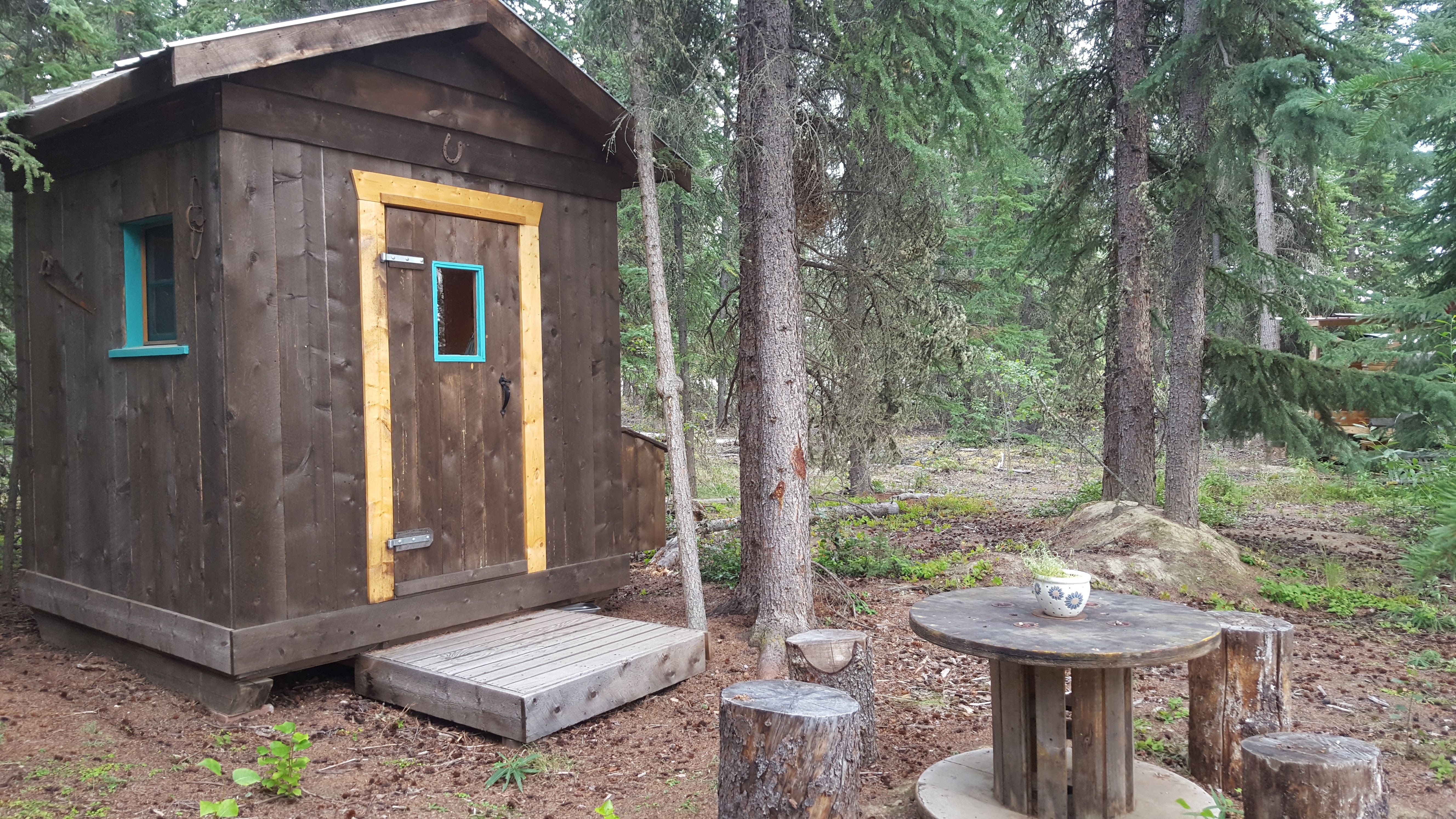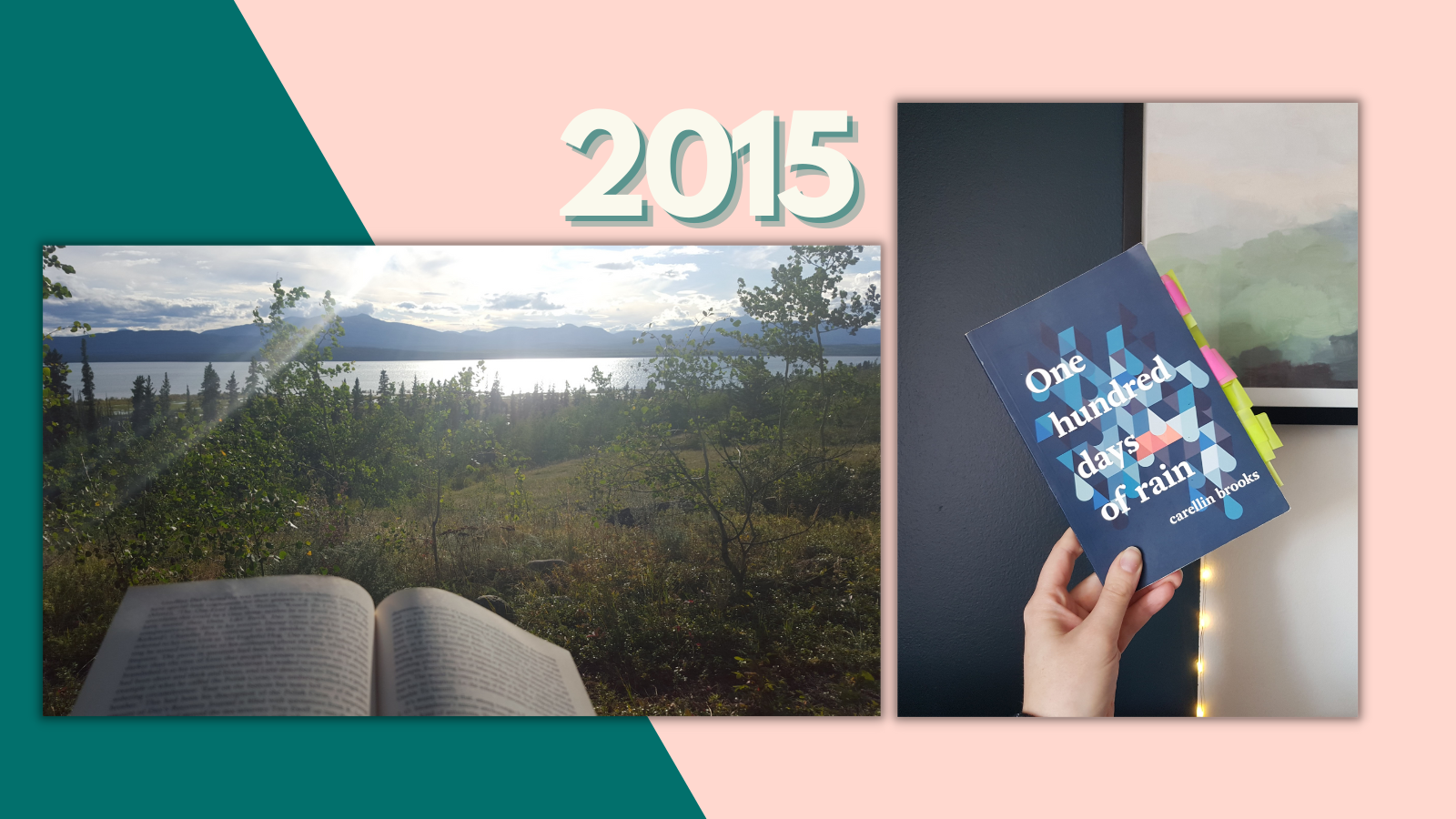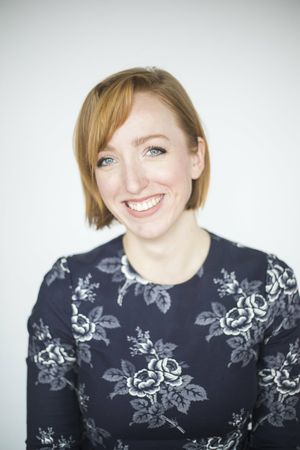You may see this post, more than 7 months after the last one, and suddenly begin to understand why it took me an entire decade to write a 40,000-word novel.
Jokes about focus and procrastination, etc.
But, really, it's because writing has never been my number one priority. It's been school, it's been work, it's been staying alive, it's been words(on)pages; when it has occasionally neared the top of my priority list, it's been superseded by reading, because reading is my favourite part of writing.
Over the past 7 months, my priorities were planning a wedding, getting married, and learning how to be an auntie for the very first time, to my best friend's perfect baby girl. It was a whirlwind of perfect moments, and I'm thrilled to be back!
Getting better, getting worse
We left 2014 in an exciting stage of growth: working at my first industry job, building up words(on)pages, and writing Suture in earnest for the first time.
We also left 2014 living in a one-bedroom basement apartment with a man I was starting to understand was abusive.
Not much changes in 2015, or in 2016 or 2017 for that matter: the next three years are always getting better, always getting worse. It is an interesting thing, living the formative years of adult life in bleak circumstances. I wanted to grow, I wanted to become a person I loved, I wanted to become a writer and a professional and a friend and a mentor. And so I did, but so too did I lose myself entirely. I took all the right steps for my career, and I learned so much about how to be kind, how to be a friend, how to be reliable and professional, and I took what I learned and I made behaviours of it. I think, from the outside, I looked like the person I wanted to be.
But I was ragged. I lost all of my confidence in myself, I lost the ability to trust my intuition, I lost the ambition to be my very best because I simply couldn't allow myself to be too much better than him. The more progress I made, as a writer or a person or professional, the meaner he got, and the more I split into two: the Nic who went to work, who went to events, who posted on social media; and the smallest Nic I could be, trying my very hardest never to be so much of myself that it made him feel belittled, or condescended to, or monstrous, or unvalued.
I was 23 in 2013, and not yet old enough to realize how young I was, and how much time I had left in my life. Everything felt urgent; everything felt like it would last forever.
Running away
It was in 2015 that my dreams of running away really started to take shape. The more I split into two, the less I could see any possible way of changing the shape of my life into what I wanted. I couldn't figure out how to leave my relationship, and I couldn't figure out how to make enough money doing the work I wanted to do but also to live in Toronto. I dreamed of living in the woods, I dreamed of joining the Navy, I browsed real estate and job listings like my very life depended on it.

It would take another 5 years to finally leave Toronto (and not for the woods), but my dreams of running away did take me to a cabin outside of Whitehorse for ten days in August 2015. I took a Greyhound bus by myself on a 91-hour trip from Toronto to Whitehorse, then got a ride to Marsh Lake where, upon arriving, I almost immediately started crying. It did get better from there, after a shower and a night of sleep in a bed, rather than a bus seat, and I spent the week reading Infinite Jest and writing Suture.
The books of 2015

Infinite Jest by David Foster Wallace
It took me about two and a half years to read David Foster Wallace's Infinite Jest. I started it in my final year of university, in 2013, and read it in spurts whenever I had time. The trouble with trying to fit Jest into a schedule is that there are paragraphs that take a full 15 minutes to read; I would sometimes spend 20 or 30 minutes reading, but only seem to have moved forward by one page because of the endnotes, or because I needed to take my time with some turn of phrase or another. It's also one of those books where momentum helps: the more consistently you read it, the easier it is to slip in and out of.
So I read the first 300 pages over the course of two years, then after a mighty long break, I took it up again during my trip to the Yukon and finished the last 800 pages in a week. There was never a moment that I thought of giving up on the book, because from the earliest pages, I was in awe: this was my first encounter with a writer who absolutely refused to tone down his genius, his difficulty, because the story deserved better, because the readers deserved a chance to meet the novel exactly where it needed to be. And yes, he asks you to climb forever to get there, but it's unquestionably worth it. The breadth of the book is incredible, and the way his writing is somehow both crisp and meandering was such an inspiration to me.
Kate Gompert remains one of the core standards against which I measure the truth of a character; in her, for the first time, I saw my depression, I felt my depression being read back to me, in all its self-contradiction. In Infinite Jest, I saw what it takes to truly build a character, I saw the extent of what their history may contain, and I saw the potential in allowing my brain to write without boundaries.
One Hundred Days of Rain by Carellin Brooks
One Hundred Days of Rain is genre-bending book about a woman living in Vancouver over, you guessed it, a hundred rainy days. I read it in the spring, on a sunny weekend in a park, and it felt just the right amount of sad.
I recently had a very special full-circle moment with Carellin's books, actually, when Book*hug approached me to ask if I would blurb her newest book, a collection of poems. It felt so special to be able to engage with her new work in this way, after One Hundred Days of Rain was so formative for me.
Making it work
Fall 2015 was also when I finally started my first real big kid job, at the League of Canadian Poets. This month, I'll actually be celebrating my 7-year work anniversary with the League! When I started, I worked 3 days a week doing communications: it was my first salaried job, my first job with benefits, and the first place I found myself a career. I would stay on with DAVIDsTEA until the following spring, when I finally started working 4 days a week and making a genuinely livable salary.
Up next in 2016, not much changes, but I'm excited to talk to you about the book highlights of the year.
Until next time,
Nic
